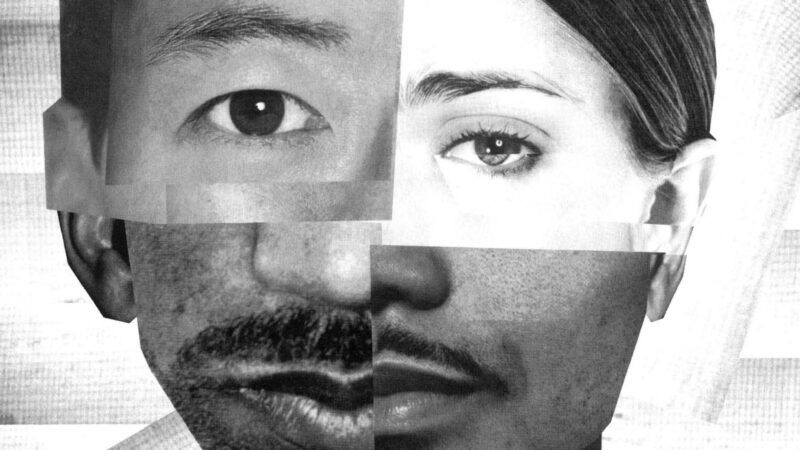Archives: August/September 2021
Excerpts from Reason's vaults

20 years ago
August/September 2001
"Although unions have often been criticized for crafting unyielding work rules, legal standards actually impose greater rigidity on the workplace. Unions can be bought off, persuaded to relax a rule in a trade for money. Legal standards, on the other hand, are set in stone. If the Fair Labor Standards Act forbids a four-day, 10-hour-a-day week, then that's that. The employer can't offer more money for the flexibility, nor can an employee who desperately wants the new schedule offer to take less."
James DeLong
"Old Law vs. the New Economy"
"If you live in the United States, then you are bound in some way by laws or professional regulations that are publicly enforced but privately owned. Portions of building codes and fire regulations in every U.S. jurisdiction were devised by private organizations, who have retained the copyright to the legislation. Citizens must obviously abide by these laws, or face punishment. But if those same citizens want a copy of the laws that control their behavior, they must buy their copy, sometimes at an impressive price."
Charles Paul Freund
"The Price of Legislation"
"The standard explanations for racial profiling focus on institutional racism, but that idea runs contrary to the sea change in social attitudes that has taken place over the last four decades. On the contrary, the practice of racial profiling grows from a trio of very tangible sources, all attributable to the War on Drugs, that $37 billion annual effort on the part of local, state, and federal lawmakers and cops to stop the sale and use of 'illicit' substances. The sources include the difficulty in policing victimless crimes in general and the resulting need for intrusive police techniques; the greater relevancy of this difficulty given the intensification of the drug war since the 1980s; and the additional incentive that asset forfeiture laws give police forces to seize money and property from suspects."
Gene Callahan and William Anderson
"The Roots of Racial Profiling"
30 years ago
August/September 1991
"Unfortunately, political reformers routinely define apathy as 'not voting.' While this hypothesis is easy to test (all you have to do is count heads), it ignores the proud tradition of, say, the Constitutional Convention delegates who threatened to walk out unless the document included a Bill of Rights. Sometimes not voting reflects the belief that the lesser of two evils is evil."
Rick Henderson
"It's OK To Hate Politics"
"Senior members of Congress tend to be more supportive of government programs than junior members of Congress. One way to measure the difference is to compare legislators' scores on spending measures, as compiled by the National Taxpayers Union. The results show that senior members of Congress are bigger spenders than junior members. This pattern holds for both parties, and it is not an effect of age. If you control for the number of years served in Washington, the legislator's age has no effect on his spending views."
James Payne
"Bad Influence"
"The problem is not that schools are setting standards, but that they are setting such ridiculous ones. UCLA should be more open and tolerant than, say, the Glendale Galleria or LAX. 'Offensive speech,' contraband on some 200-plus colleges with codes, should be carefully steered right into the arena of Higher Learning, center court. That is exactly where it should compete, and where its audience should assemble. As the famous Marxian historian Eugene Genovese recently wrote: 'Any professor who, subject to the restraints of common sense and common decency, does not seize every opportunity to offend the sensibilities of his students is insulting and cheating them, and is no college professor at all.'"
Thomas W. Hazlett
"P.C. Left, P.C. Right"
50 years ago
August/September 1971
"The role of usury laws in creating a black market for criminal loan-shark organizations is not a unique phenomenon. Whenever a commodity or service is declared illegal, the law automatically provides 'protection' to those who desire to supply that service or commodity and who are willing and able to operate illegally. The law creates the necessary conditions for criminal monopoly by destroying legitimate competition. For example, this is clearly what happened with the passage in 1919 of the Eighteenth Amendment prohibiting liquor sales."
John Seidl
"Let's Compete With Loan Sharks"
"It is a widely accepted myth that free enterprise leads to monopoly or the control of industry by a few and that the government must intervene to protect consumers. Even strong supporters of capitalism have been taken in. But, to the contrary, (1) there is no movement toward concentration; (2) such a movement could never happen; (3) no harm comes from the private ownership of an industry even by one or a few; (4) even if there were harm, the government is incapable of alleviating it; (5) government actions themselves create harmful monopolies and cartels."
Rob Manis
"Free Enterprise and the Monopoly Myth"


Show Comments (11)